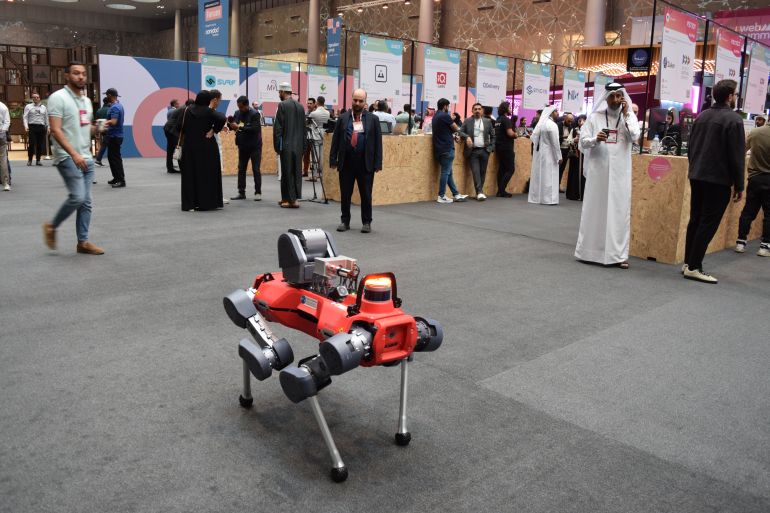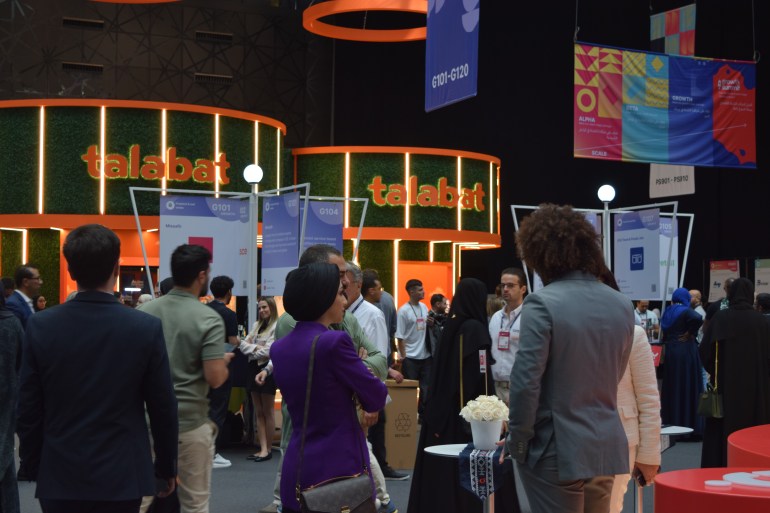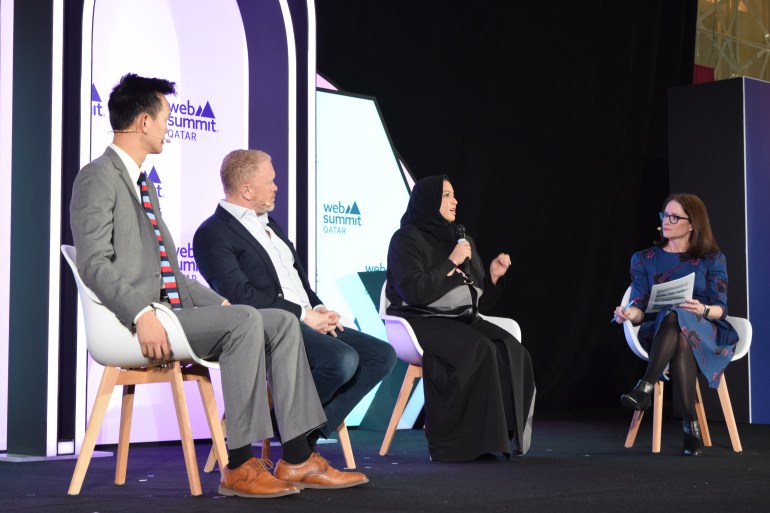Could AI deepen inequalities in the world?
AI technologies are hailed as cutting-edge, but they risk replicating biases and disparities already in place in our world today, experts warn.

Doha, Qatar – At one of the world’s largest technology conferences, whether it was on the main stage, its side panels, or at the dozens of glitzy, towering company booths, there was one term on everybody’s lips: artificial intelligence (AI).
At Web Summit – held for the first time in the Middle East in Doha – and which wrapped up on Thursday, entrepreneurs, investors and business leaders from around the world were all talking about AI’s capabilities.

Yet alongside that excitement, there are also growing concerns among experts that these technologies could exacerbate inequities dividing the world.
Technologies, including AI, run the risk of amplifying biases that already exist, according to Ayo Tometi, co-creator of the US-based antiracist movement Black Lives Matter.
Keep reading
list of 4 itemsAI takes centre stage as Web Summit kicks off in Qatar
CEO of prominent tech conference resigns over Israel ‘war crimes’ post
Web Summit appoints new CEO following protests over ‘war crimes’ post
“We’re seeing quite literally, that prejudice is being programmed into the technologies that are being deployed in our communities. And these biases must be addressed,” Tometi said at the summit.
The social justice leader shared the example of predictive policing tools, which have been especially harmful to people of colour, particularly Black people in the United States, she said.
According to a report in MIT Technology Review, there are broadly two types of these tools currently in use in the US.
The first, tools that use location-based algorithms to predict where crime is likely to happen. The second, tools that draw on data about people, such as their age or gender, to predict who may get involved in crime.
According to a study by accounting behemoth Deloitte, smart technologies like AI could help cities reduce crime by between 30 and 40 percent.

But these technologies, Tometi said, are a “real serious cause for alarm, because we have yet to address racism and anti-Back racism within the criminal justice system already”.
When these technologies are doled out, they are assumed to be neutral – but that is just not the case, she said.
“[We’ve] seen cases where people are locked up right now because of a faulty facial scan. They just don’t see our faces in the same way, they don’t recognize our features,” Tometi pressed.
“There’s just so much bias and discrimination of stereotypes that are being normalised through these technologies.”
AI and the digital divide
In addition to amplifying existing biases, another concern shared by experts about AI technologies is that they may exacerbate the global digital divide.
Countries need to “accelerate their development in AI [by] being a producer rather than a consumer”, said Alaa Abdulaal, from the Saudi Arabia-based Digital Cooperation Organization, speaking at the summit.
Abdulaal added that creating opportunities for upskilling can lessen this divide, and that governments cannot alone take this on; civil society organisations should step in.
Jihad Tayara, CEO of the UAE-based firm Evoteq, offered a counter perspective, saying that while the race to AI supremacy on the world stage is dependent on funding availability, its consumption worldwide is narrowing the digital divide.
“Most nations have better access now to connectivity,” Tayara said at the summit, adding that cloud computing and storage services are becoming less expensive, and that data is becoming more widely available.
On the front of AI production, however, some nations still lag far behind, the CEO acknowledged.
A recent trip to sub-Saharan Africa helped Tayara and his team understand, he said, that that region has no foundation yet to replicate his company’s “advanced” AI analytics in the pharmaceutical industry.

Still, countries around the world are enthralled about AI’s potential today far more than they were when mobile technologies first bloomed or when the internet itself was created, according to Frank Long, vice president at investment banking giant Goldman Sachs in the US.
“In part, [it’s] because of the enormous economic impact that [AI] could have, but also because of the direct geopolitical applications,” Long said at Web Summit.
Long also argued that the race to develop AI technologies will be multilayered, adding that there are “dynamic initiatives” under launch worldwide.
“I think it’s not going to be a straightforward horse race, this person or that person, this country or that country,” he said. “It’s going to be a full stack with participants and competition at each layer of the stack.”